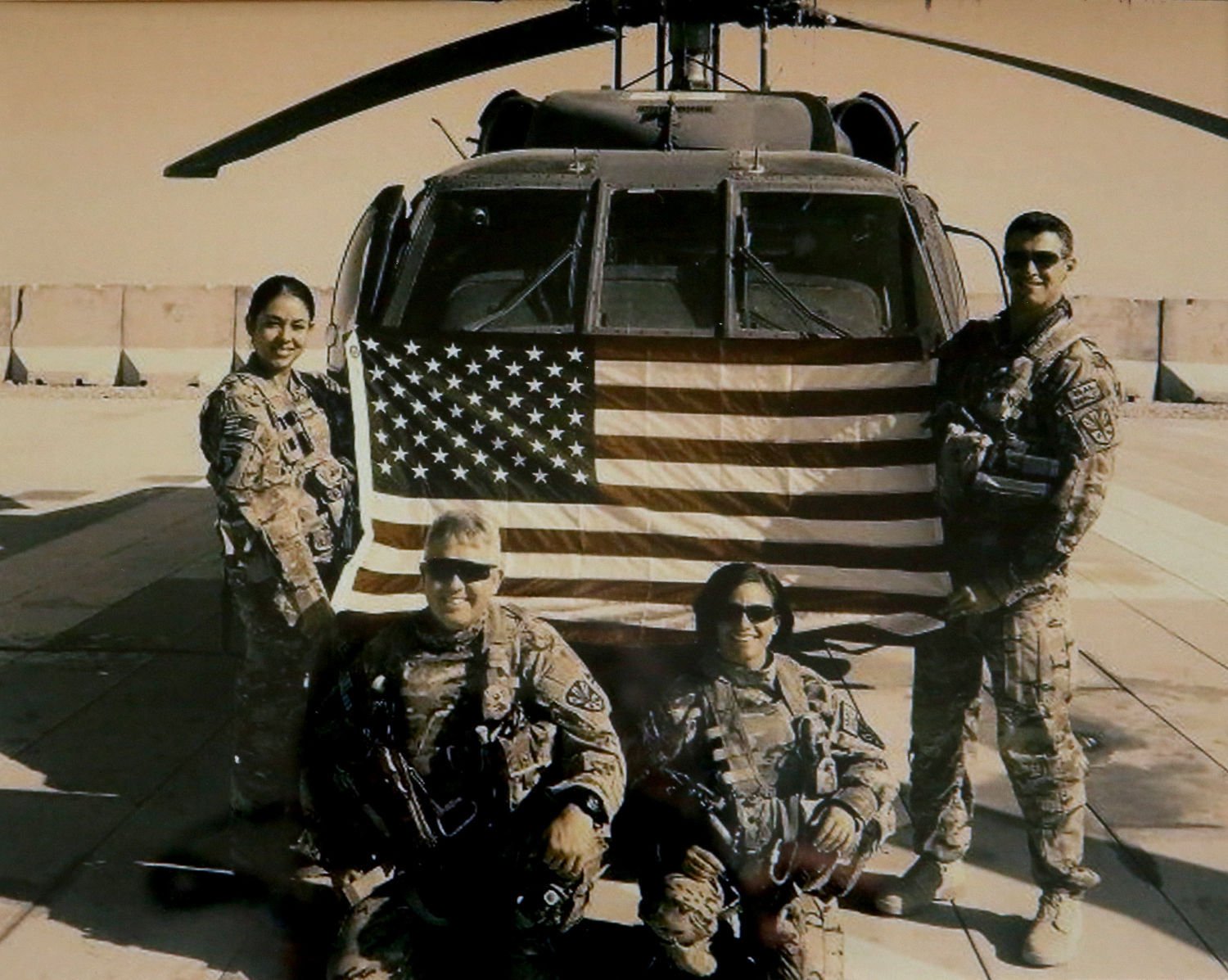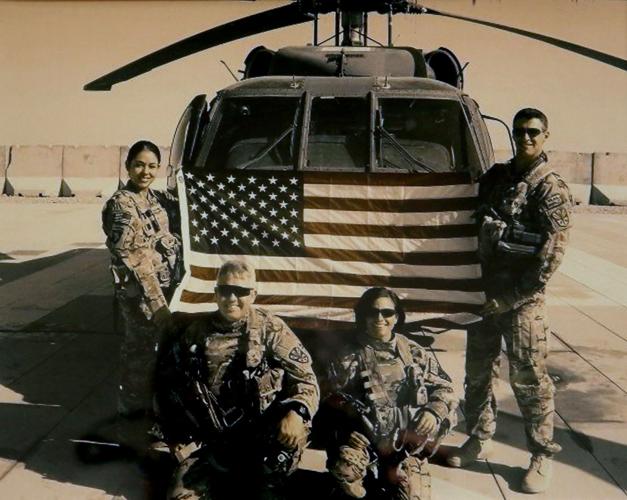For as long as she can remember, Lupecelia Leon has sought out adventure.
When she declared she wanted to learn how to fly at the age of 16, her parents thought she was crazy.
Using the money she earned at her after school job at Burger King, Leon began taking flying lessons at Ryan Airfield.
Today, as a member of the Arizona National Guard, Chief Warrant Officer 2 Leon flies Black Hawk helicopters.
Having been deployed overseas three times and preparing for a fourth in the coming weeks, the medevac pilot has been in enough combat situations that she is no longer chasing thrills. Instead, she treasures time with her family.
It’s likely her adventures and thrills will continue.
The 33-year-old serves not only the country in her military career, but Pima County as a sheriff’s deputy and member of the search and rescue team since 2013.
No longer bewildered by their youngest daughter’s choices, Leon’s parents are proud of the path she has taken — something Leon has asked them not to draw attention to.
 |
“To me, it’s nothing more than a job,” she said.
Her father, Pete, disagrees.
“Medevac pilots and their crew are unsung heroes who saved countless lives under enemy fire and extreme weather conditions,” he said.
Leon made the decision to enter into a life of service as a student at Sunnyside High School. She entered basic training for the Army in September 2000 — just four months after graduation.
She would remain in the Army through January 2005, when she enlisted in the Arizona National Guard.
Basic training was the first time Leon had been away from her family, and she admits she was nervous. But it was there where Leon says she learned the importance of teamwork. It’s a lesson that served her well during her last deployment to Afghanistan in 2011, where she flew her crew in to retrieve injured Marines and prisoners of war.
Knowing that her crew was capable of caring for the severely wounded on board, Leon was able to focus on her responsibilities — getting out of danger and delivering those in need to medical services.
Over the course of a year, Leon flew more than 100 missions, including eight within a 24-hour period.
Even though she had previously been deployed to Qatar and Afghanistan, serving in administrative roles, this was the first time she had been exposed on a daily basis to the cost of combat — picking up Marines who had lost legs, or arms, or both.
Leon and her crew were also tasked with transporting injured civilians, which came with a different type of risk.
“We received intel that the main goal was to get a helicopter with the red crosses, so they would do things to get us to go out so they could study us,” Leon said.
“There were different occasions where they would hurt their children. One time, a little girl, I think she was 9, she got shot in the stomach by her dad because they wanted to time us — the man always had to get in the helicopter with their child, but we knew right away because we would see the way they would look at their watches.”
The overall experience was challenging for Leon, not because of the gruesome scenes but because of the self-imposed pressure to save everyone.
“The reality is you can’t save everyone and you want to,” she said.





